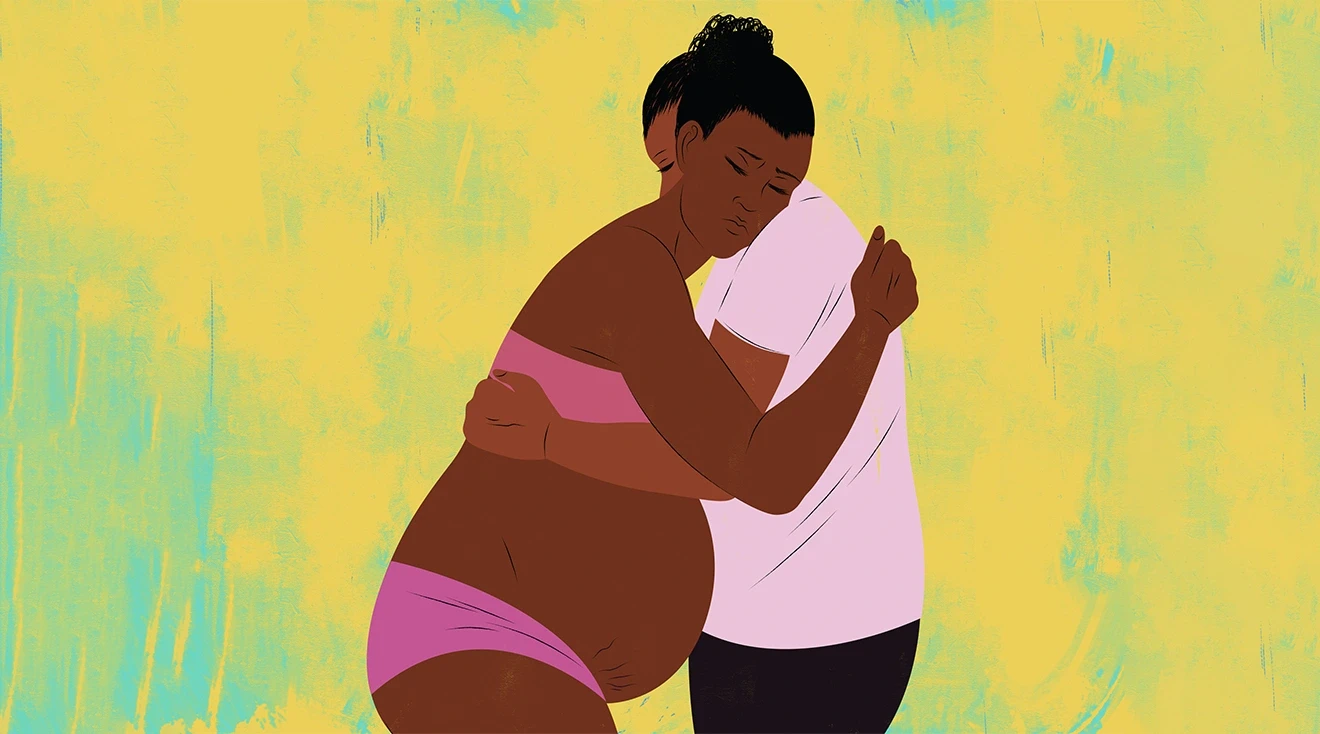Report: Why Doulas Are Burning Out and What We Can Do to Support Them
As studies continue to draw attention to America’s increasing maternal mortality rate, the government, healthcare organizations and individuals look for solutions. One of the most heralded fixes in legislation and speeches—more involvement of community-based doulas.
Rooted in Black and indigenous ancestral practices, midwives and doulas prove to be extremely valuable birth workers and advocates, especially for Black women who consistently see the highest maternal mortality rates. But a new study shows that while America expects doulas to show up for vulnerable mothers in this crisis, we aren’t showing up for them.
The survey conducted by the Mama Glow Foundation of its large doula community seeks to understand why birth workers, BIPOC doulas in particular, are experiencing high levels of burnout and leaving the workforce.
The report identified three main barriers to doula practice.
1. Questioned Authority, Autonomy and Qualifications
According to the report, 77 percent of doulas surveyed said they felt unwelcome and disrespected in hospital settings. Doulas often report that many medical providers either aren’t comfortable working with doulas, don’t understand their role and designate them as family or friend in the labor and delivery room or don’t allow them to practice fully.
2. Lack of Communication Within The Care Team
Forty-eight percent of respondents said they had issues feeling heard, seen or listened to when it came to their client’s care. Some doulas described situations where they were excluded either passively or actively from conversations.
3. Unpaid Labor and Poor Working Conditions
Finally, doulas described the almost constant hassles that came along with scheduling, being underpaid and always being on call. Overall, 37 percent said they struggled with unpaid labor and poor working conditions.
Despite these barriers, there is light for a way forward. Mama Glow believes we can do the following to ensure that birth workers are seen, heard and respected, and their practices are sustained.
- Educate providers and healthcare leaders so they can better understand the role of doulas and the many benefits of having a doula as a part of a labor and delivery team.
- Foster respect and preserve the autonomy and self-determination of birth workers in all settings. Communication lines must be opened and all voices should be heard when it comes to patient care.
- Streamline Medicaid processes and increase rates. Overcomplicated, paperwork-heavy processes keep doulas from being reimbursed for their services promptly or at all. By simplifying the process, more doulas will be able to provide care to the women who need it most.
- Provide sustainable, thriving wages for doula services. Considering all the heavy lifting, literally and metaphorically, that doulas do every single day, they deserve to be compensated fully and fairly for their labor.
When looking to address these barriers, the government, hospitals and individuals must consider not only how these changes benefit doulas but how they will also improve maternal and infant health outcomes across our nation. For more information on how you can support Mama Glow’s efforts, including how you can sponsor a doula’s training, visit MamaGlowFoundation.org.
Navigate forward to interact with the calendar and select a date. Press the question mark key to get the keyboard shortcuts for changing dates.





















































